Quick Links
Civilization 7’s Antiquity age encompasses the first generation of your Civilization, and as a result, setting up the correct foundations in this era is important for the success of your empire over the following two ages. This will be the part of the game where you first explore the map, collecting goodie huts, meeting city-states, and encountering your rival players for the first time. There are many ways to play in the Antiquity age.
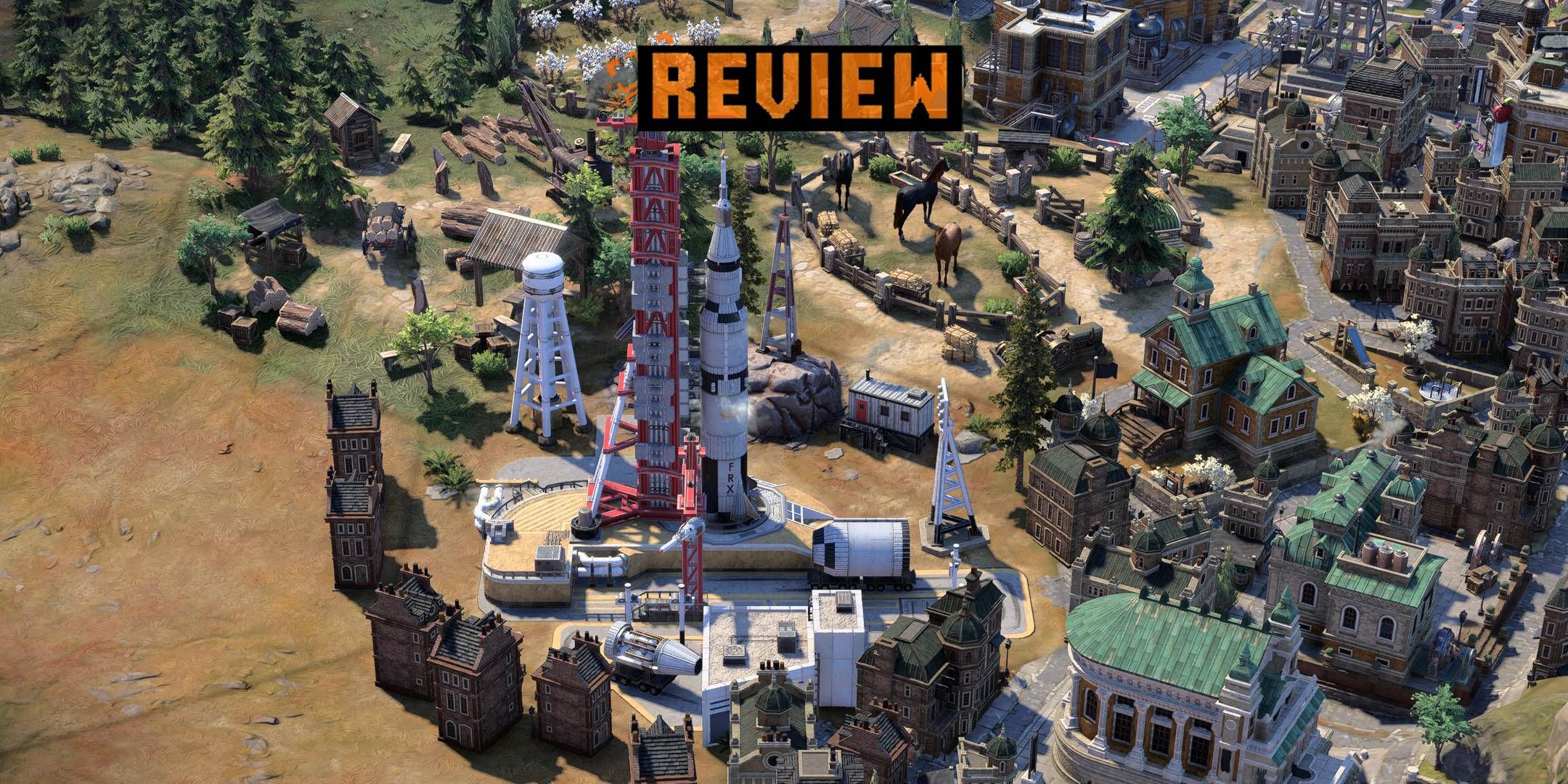
Related
Civilization 7 Review – Classic Civilization With A Few New Twists
An excellent art style, fantastic sound track, and great leaps forwards for replayability, Civilization 7 is a great game. But it will prove divisive.
This guide covers everything you need to know about the Antiquity Age, from exploration and combat, to winning conditions and legacy rewards.
Starting The Game
Even before the game begins and you first step out into the brave new world of Civilization 7, you’ll have some important choices. First, your leader, their mementos, and which civilization you’ll pair your leader with.
These are all game-changing elements. Your leader determines your playstyle across all three ages, whereas the mementos can provide buffs, rewards, and attribute points to get an early advantage, or to be more useful in the mid-game. The starting civilization you choose will also impact how you intend to play the game, though this will change twice as you play.
Even before the game begins, we recommend that you consider what type of victory you want to go for: cultural, economic, military, or scientific. Your goals may shift as the game progresses, but it’s a good idea to begin with a rough idea, as leader bonuses, mementos, and civilization choice all lean into specific victory conditions.
Settling Your First City
Much like in previous Civilization games, your first city and where you choose to place it are absolutely crucial.
In this example, our Founder has spawned on a river tile, with Horses and Marble nearby. It’s also a heavily wooded area. Everything about this start suggests an early production focus, with the potential to use the Marble bonus of extra production for wonders to get an early head start on some important, game-changing buildings.
Every start in Civilization 7 is different, and each leader does have their own starting biases. The choices are always unique, but as you play you’ll start to be able to build a strategy immediately once you see which resources are nearby.
Using the new Settler overlay, located in the bottom left of the screen accessed via the Lens menu, you can see that the game is suggesting we move one tile to the north. This may be because there are other accessible resources we don’t have vision of yet. Moving one tile on a river will delay our city centre by one turn, but it may be worth it if we gain access to another resource.
In this case, we do settle one tile to the north, which allows us to grab the Horses as our first tile unlock, which grants our city two production and suggests that we should take Animal Husbandry as our first technology for extra food on Pastures. It’s also going to unlock the Saw Pit, which will be useful for our city as we expect to have plenty of woodcutters in those woods to the south.
Early Scouting Strategy
Civilization 7’s goodie huts are very, very powerful. More so than ever before, the double or even triple scout strategy at the start of the game makes a lot of sense. Using the new Search function on our Scout, we can reveal goodie huts up to 12 tiles away.
This reveals a Campfire to the south. We head immediately in that direction with our scout to claim the early reward.
There are two options here: claim some early culture and happiness for our first celebration, or get 75 gold. Gold is difficult to come by in the early game and in this case, we will choose the gold.
However, there are some cases where the culture and happiness towards your first celebration might be the better choice – this will depend on your leader choice or civilization, as some will receive excellent bonuses for early culture (to unlock new civics quickly), or buffs during celebrations.
Independent Powers
We also discovered Gungnae, an independent power. Gungnae is a gold-focused independent power, and in this case, the independent power is aggressive. As we are playing as Machiavelli, a leader with lots of bonuses for influence and city states, we won’t destroy this power, but instead attempt to befriend it.
When you befriend Independent Powers, you can receive lots of bonuses, and eventually even incorporate them into your empire. Befriending city states requires Influence which increases by a flat plus 10 at the beginning of the game. It’s quite a tricky resource to get your hands on early, and it can have some game-changing impacts whether you decide to use it to impress your nearby civilizations (and get food, science, and trade), or to become the suzerain of any independent powers you find.
These are the sort of difficult decisions that Civilization 7 is all about. As you learn the game and the unique nuance of your leader and civilization, you can begin to make better-educated choices.
Victory Conditions
As we’ve already mentioned, choosing which sort of victory condition you’re going to aim for is so important in Civilization 7.
In the Antiquity Age, you can aim for a cultural, military, economic, or scientific victory. Each of these paths has its own unique milestones, quests, and rewards. Upon completing milestones, the Age timer will progress, eventually leading to an end-of-age crisis (more on that below.)
Culture Victory
A Culture Victory is achieved in the Antiquity Era by building wonders. Everyone is competing for them, however, so you’ll need to focus on Culture (to generate civic research) and production (to be able to get your wonders.)
Victory is achieved when you reach seven constructed wonders. However, you can also earn milestone points via the Culture Victory path. These will grant extra bonuses for the next age, including legacy points.
A Culture Victory will ensure that you have the option to begin a Cultural Golden Age in the Exploration Era. This will turn your regular Amphitheaters into Golden Age Amphitheaters.
Military Victory
A Military Victory is achieved by settling and conquering settlements, aiming to have 12 settlement points. Conquered settlements count for two settlement points.
If you reach this goal, you can choose the military golden age, which grants an extra military unit for each settlement you conquered in the Antiquity Age.
Economic Victory
The Economic Victory is all about trade. The aim is to have 20 resources slotted into your towns and cities. You can get access to new resources by trading with civilizations.
You’ll want to focus on getting merchants as soon as possible, as well as wonders and civics that grant extra resource slots to be able to actually hit 20 available slots.
If you reach 20 resources, you’ll unlock the Economic Golden Age, which allows you to retain any cities as cities into the Exploration Age. Otherwise, cities are converted back to towns.
Science Victory
A Science Victory is completed by unlocking scientific buildings and civics, while collecting Codexes. Codexes can be earned from scientific city states, research, and from some civics. This will usually be from researching the secondary mastery of researched tech.
A Science Victory Golden Age will turn your Academies into Golden Age Academies.
All victory conditions are viable, but you will want to earn at least one golden age. If you are unable to do so, you will have the option to choose Dark Age rewards, which do offer a bonus – but often come with a caveat as well.
Policy Cards
Similar to Civilization 6, Civ 7 has a policy card system. You unlock new policy cards via technology and civic research. Whenever you discover a new civic, you’ll have the chance to swap out your policy cards.
These also offer a lot of important bonuses and will shape the way your empire grows. During the Antiquity age, where policy card slots are restricted, these choices are even more impactful. Later in the game, you’ll have so many slots that you don’t need to worry as much.
The first two policy card slots on any run will either grant +1 Production and Science on the Palace or +2 Culture on the Palace. These might seem inconsequential, but this decision is already important: do you go for civics (earned with culture) or for science and production (for technology and building/unit production)? This will vary from game to game. There is no “this is the best option” in Civilization 7, because there are just so many variables.
In the case of our example game, we chose Culture. This is because we have plenty of production in the capital and can earn early science because we’re going to research Writing first.
Technology And Civics
There are two research trees in Civilization 7: technology and civics.
Technology Tree
The tech tree is similar to previous iterations of Civilization. You select what you want to research, and you’ll earn it turn-by-turn depending on your science income.
There are three starting technologies to choose from: Animal Husbandry, Pottery, and Sailing.
The decision between these three all depends on your starting settlement and surrounding lands. If you have pastures, go for Animal Husbandry. If you have a lot of clay pits and mines, go for Pottery. If you think it’s going to be an early fishing boat game, or have coastal resources, go for Sailing.
Science is very powerful in Civ 7, especially at the higher difficulties. The AI receives major combat bonuses and the level of your units is a huge factor. If your opponents are more scientifically-advanced than you, your armies likely won’t stand a chance. This means you essentially have to pick up some military tech during the Antiquity age.
Civic Tree
There are actually two Civic trees in Civilization 7. First, you have the Antiquity Civics and secondly, the civics linked to your unique civilization.
Again, the choices you make here are impactful, and you should weigh up the options between pursuing rewards from the standard tree to attempting to access the full width of your civilization’s unique bonuses.
Depending on the success of your empire, and whether you lean heavily into Culture or not, you might not be able to research every civic on the tree. This makes the choices even more important.
As an additional tip, a lot of World Wonders are locked behind Civic research rather than technology. If you’re aiming for a cultural victory, then you’ll want to focus on civic research to unlock wonders.
In our example game, we select Animal Husbandry and both Greek civics (Agoge and Ekklesia) because we’re aiming to play an influence-heavy game with early wonders.
Government Selection
Over the first couple of turns, you’ll be able to select your first Government. This provides your civilization with the choice of two bonuses to receive during a celebration. A celebration is earned by accruing happiness, which you can see at the top left of your screen. Earn more happiness and you can get your celebration faster. This is also why goodie huts are such a great early advantage, as they also provide happiness towards celebrations.
You can choose from Classical Republic, Despotism, and Oligarchy.
Classical Republic
- +20% Culture for ten turns
- +15% Production for wonders for ten turns.
This is an excellent choice of government for civilizations that are attempting an early culture and wonder rush. You can choose culture early to blast through the civic trees, and then use that advantage to unlock wonders early and build them faster.
Despotism
- +20% Science for ten turns
- +30% production while training Infantry units for ten turns
This is your classic militaristic approach. Earn the science to grab early military tech and unit upgrades, and then use the 30% extra production (a significant buff) to pump out lots of units.
Oligarchy
- +20% food for ten turns
- +30% production towards buildings for ten turns
This is your standard growth option, and it’s pretty much viable for any win condition. The extra food buff means your cities and towns will grow very quickly, and you can then use the building buff to fill them out with important buildings, like early altars, science buildings, and monuments.
Meeting Your First Rival Civilization
As you explore with your scouts hunting for goodie huts, you’ll eventually run into your first rival civilization.
You can either choose to greet them with a friendly greeting at the cost of 20 influence (revealing their capital and getting your relationship off to a good start), a neutral greeting which costs no influence, or a hostile greeting, which immediately reduces your relationship by -20.
Generally, a friendly greeting is recommended. However, there are, of course, options. A friendly greeting costs 20 influence, or two turns of influence. Influence can be used to befriend Independent Powers. At standard speed, it costs 170 influence to befriend your first power. It may be the case that you want to save your influence to quickly start the befriending process with a city state.
Alternatively, you may want to grind Amina into dust with an early military push, so why not just give her a hostile greeting? What could possibly go wrong?
Diplomacy
Diplomacy has received a substantial overhaul in Civilization 7, with a lot more options for interaction between you and your AI rivals.
Even early on, you have the choice of Open Borders, Open Markets, and a Local Festival.
Open Borders means you can both move units through each other’s territories, Open Markets, which grants potential gold for you and your rival, and a Local Festival, which does the same for happiness.
These are actually extremely powerful options. Extra gold and happiness early on can be the difference between some quickly-purchased units or a fast celebration for those huge buffs.
Crises
When the age reaches 70 percent completion, you’ll receive the first notification of a crisis forming in your empire, and the rest of the world. There are a few different options here, and this will depend on which sort of crisis is actually happening.
It may be a religious crisis, a plague, or something that impacts your military. You will need to select a crisis card to place into one of your crisis slots.
Typically, the first slot can be filled with something that doesn’t impact your civilization too much – a bit like the -6 Combat Strength against independent powers as in the example above. You will need to fight independent powers that spawn during a crisis, but this won’t impact your happiness, gold, or anything else. Usually a safe(ish) take, even if you have a small military force.
When the age timer hits 100 percent, the Age will end – and it’s time to progress to the Exploration Age.
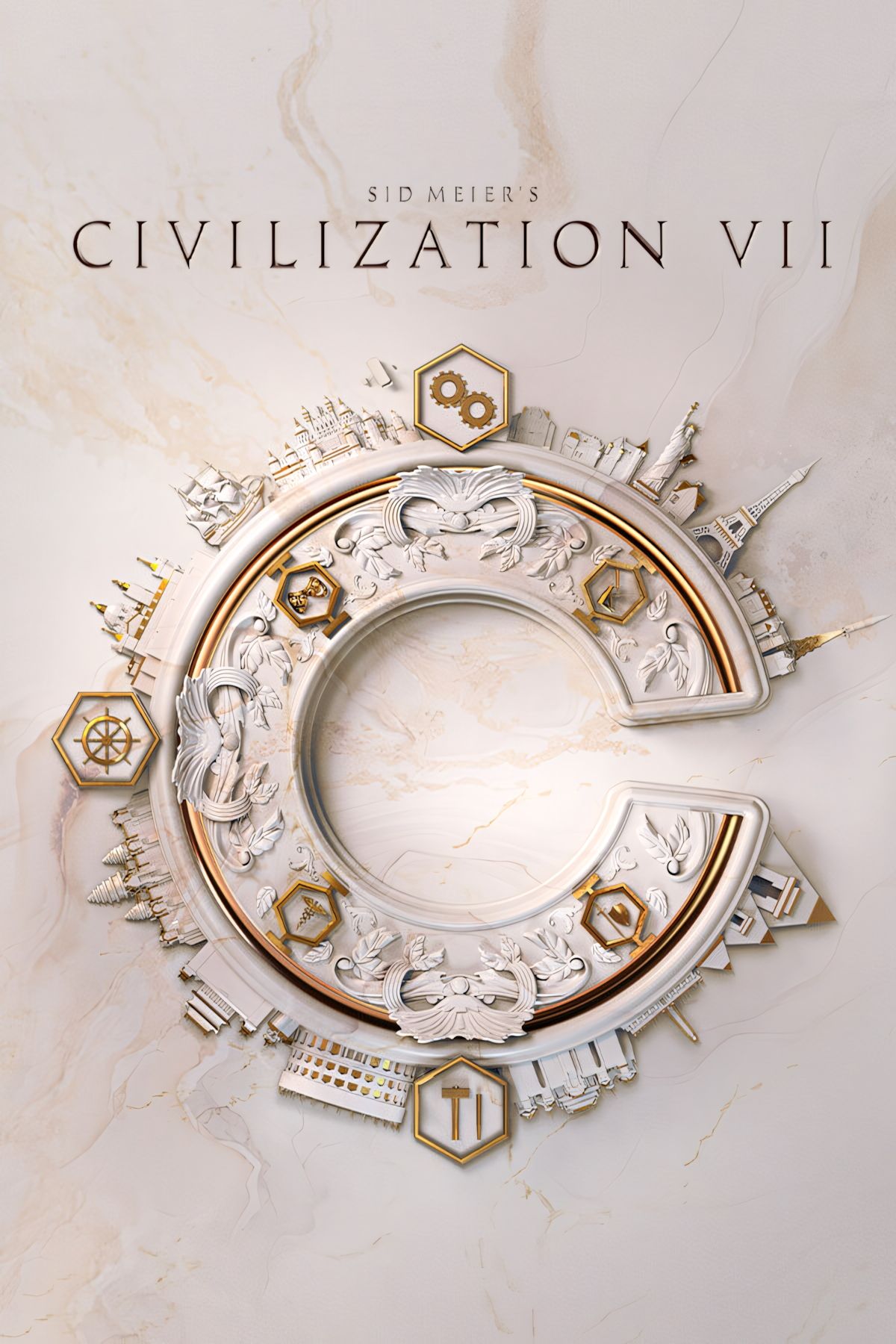
Grand Strategy
Turn-Based Strategy
4X
- Released
-
February 11, 2025
- ESRB
-
t
- Genres
-


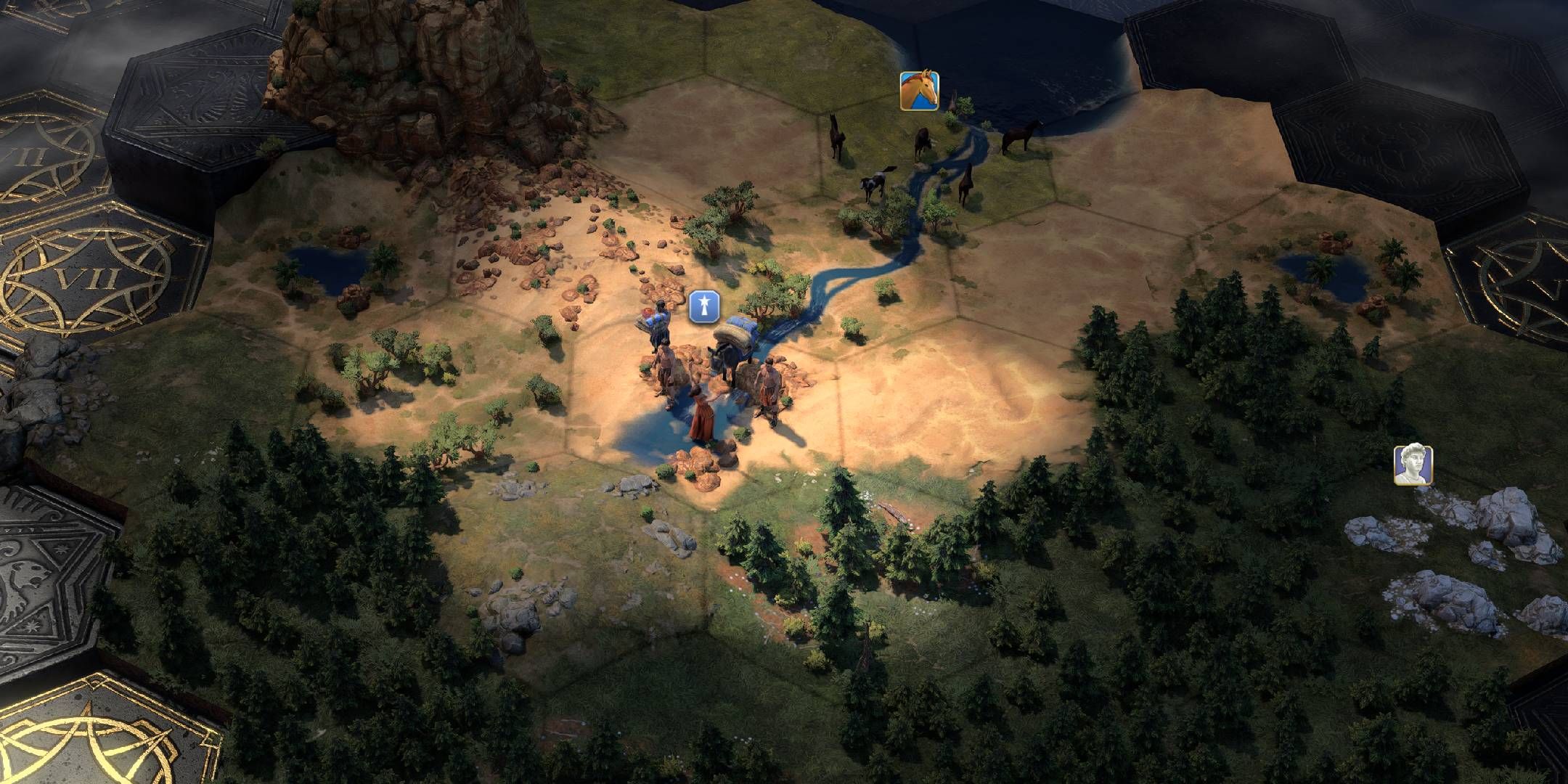
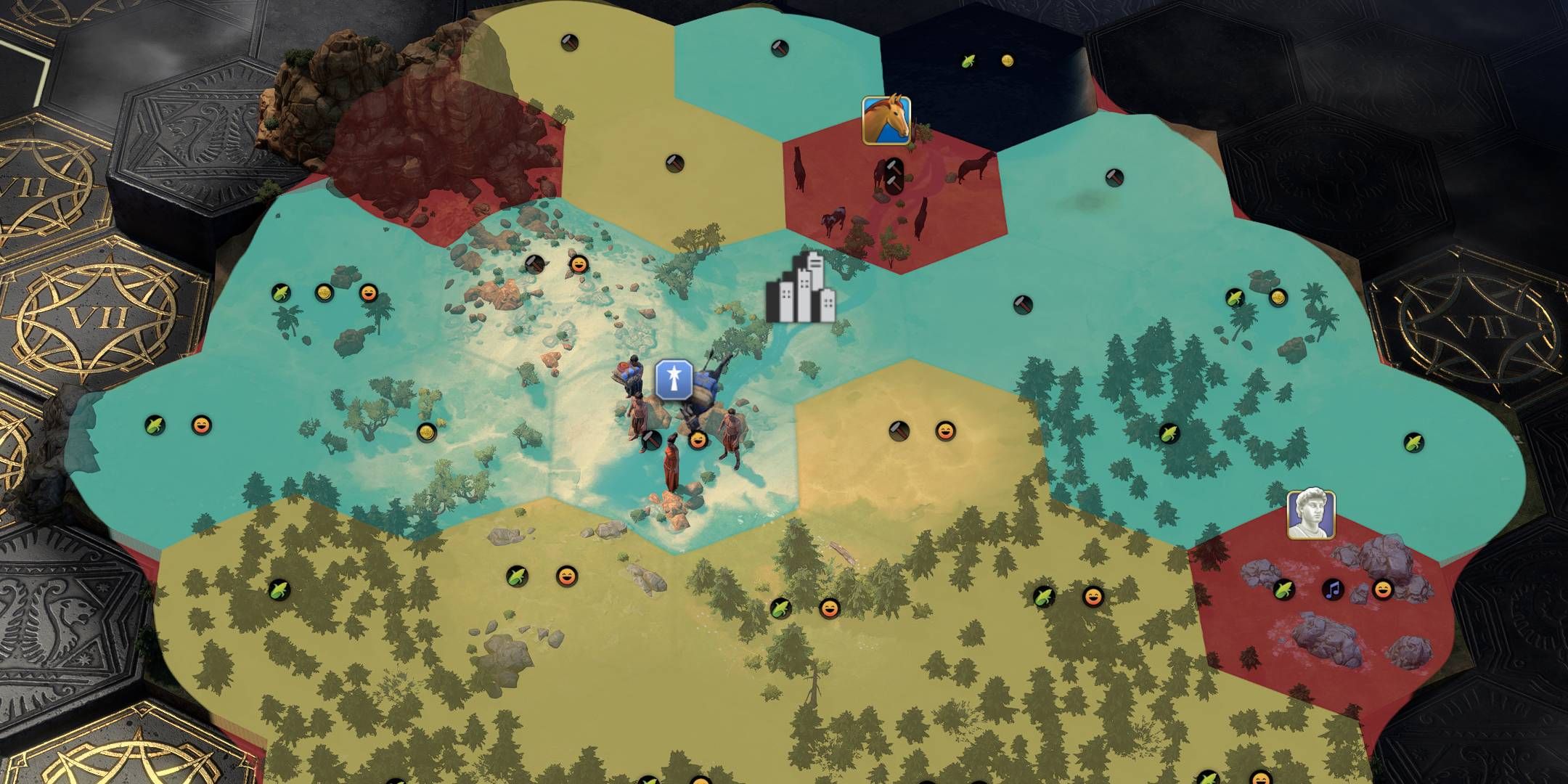
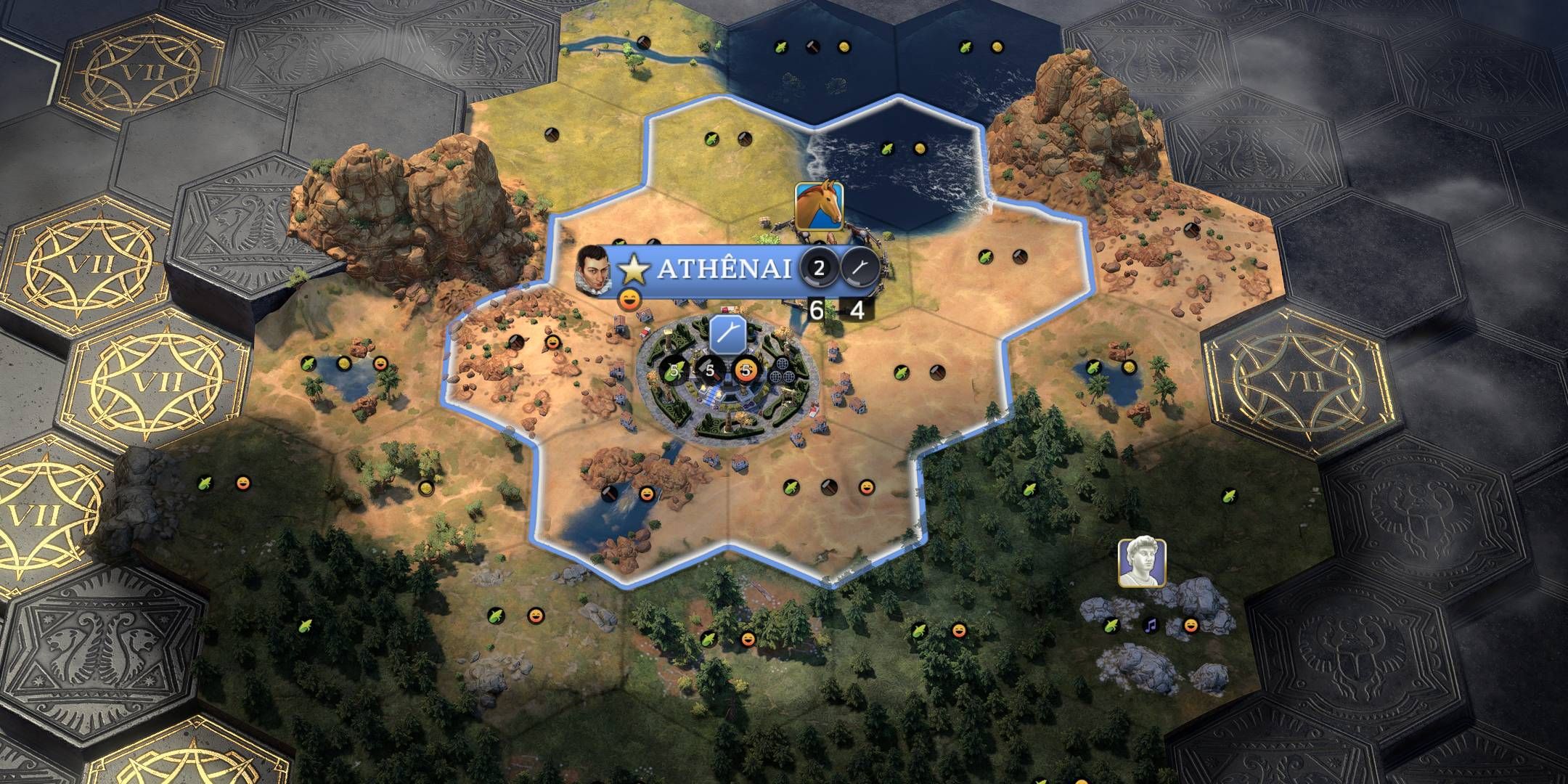
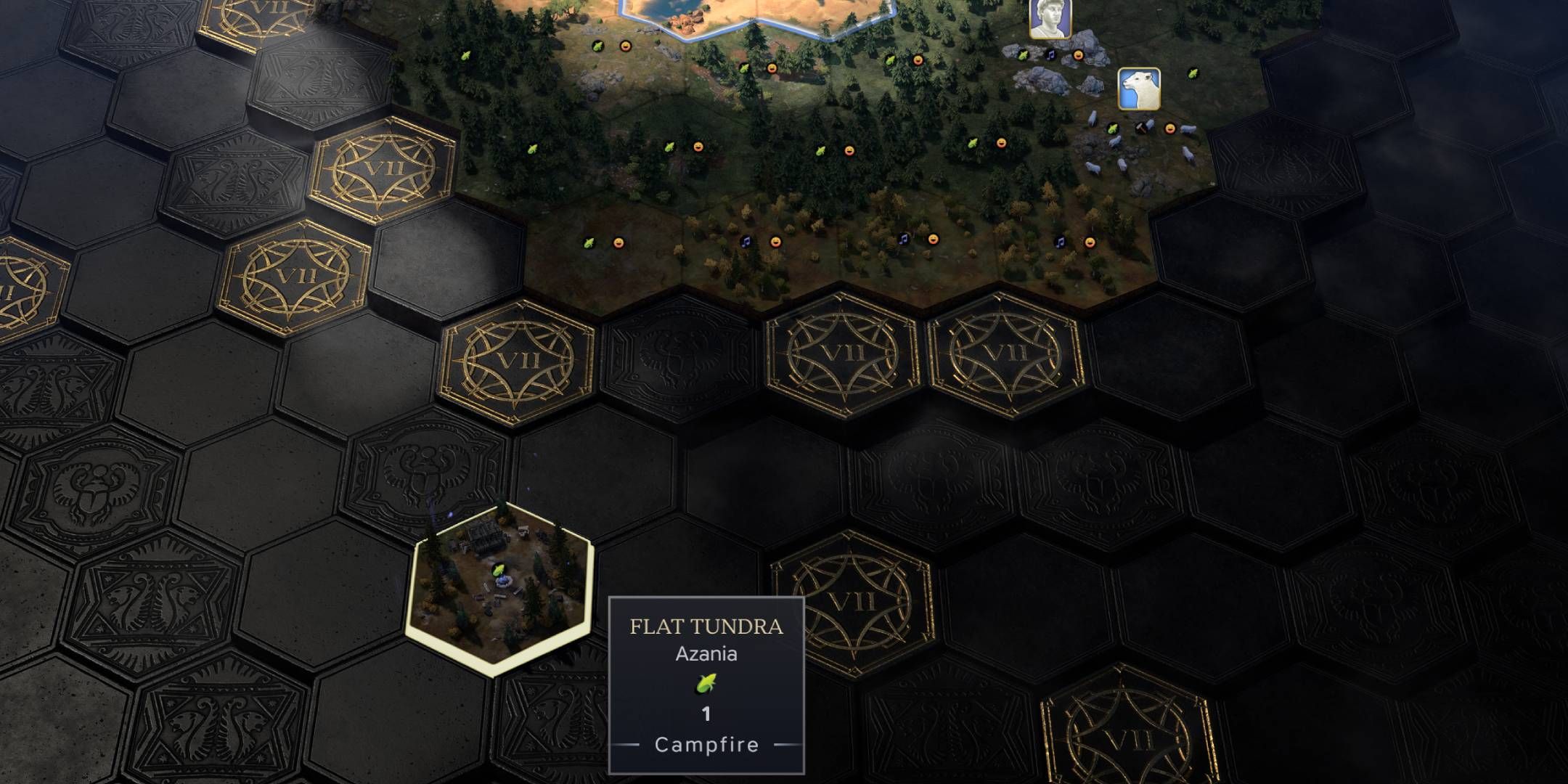
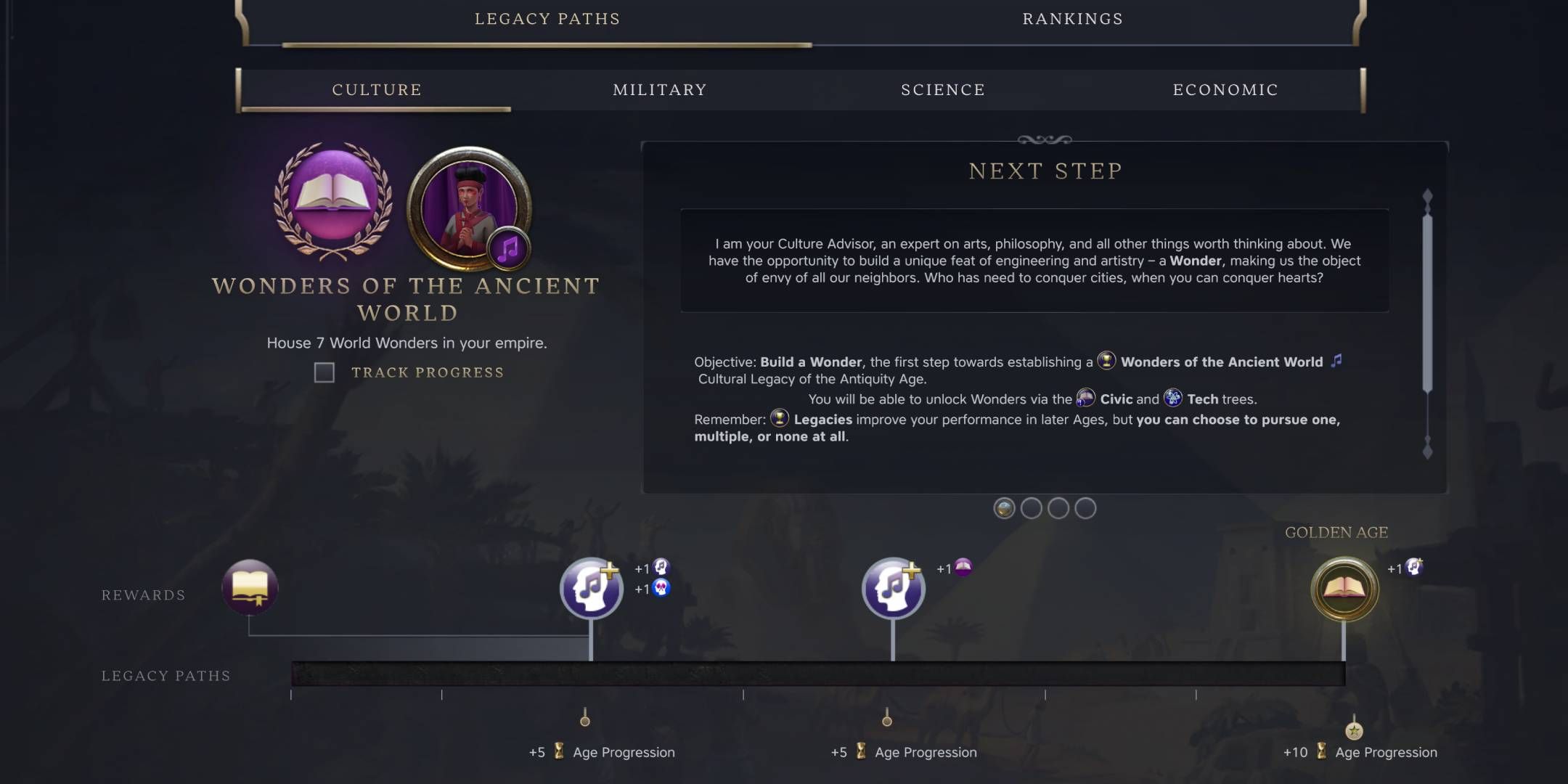
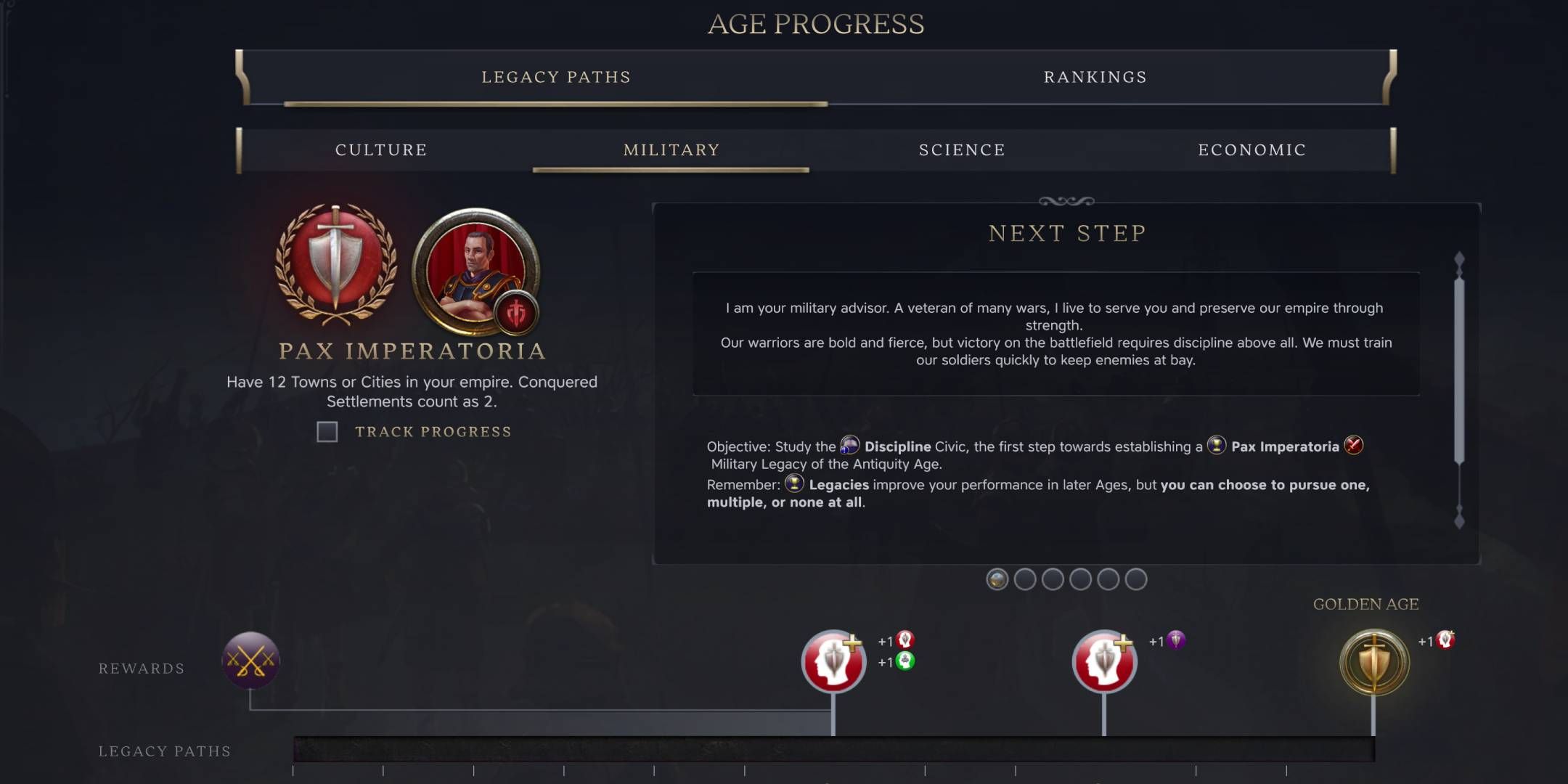
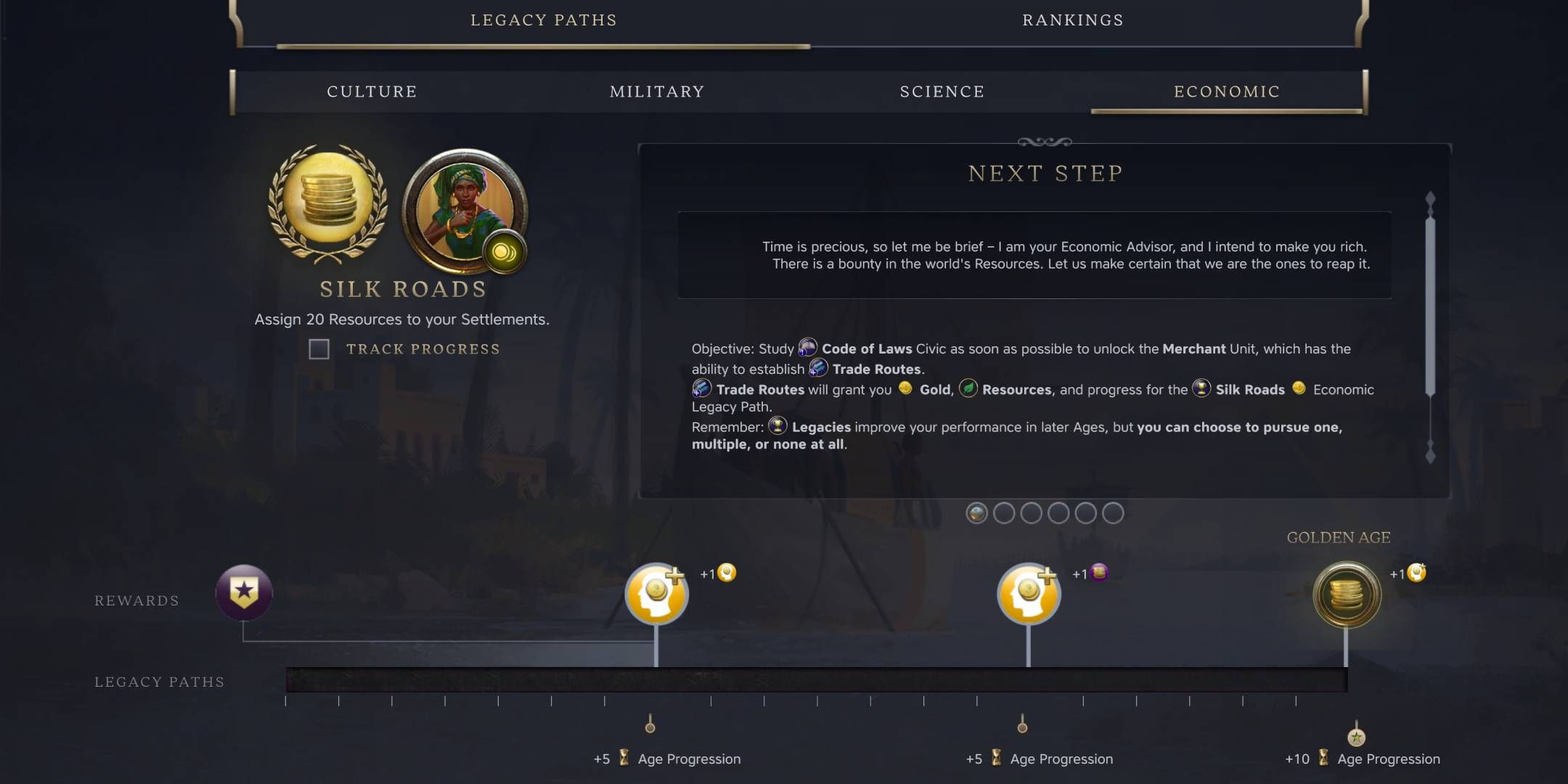
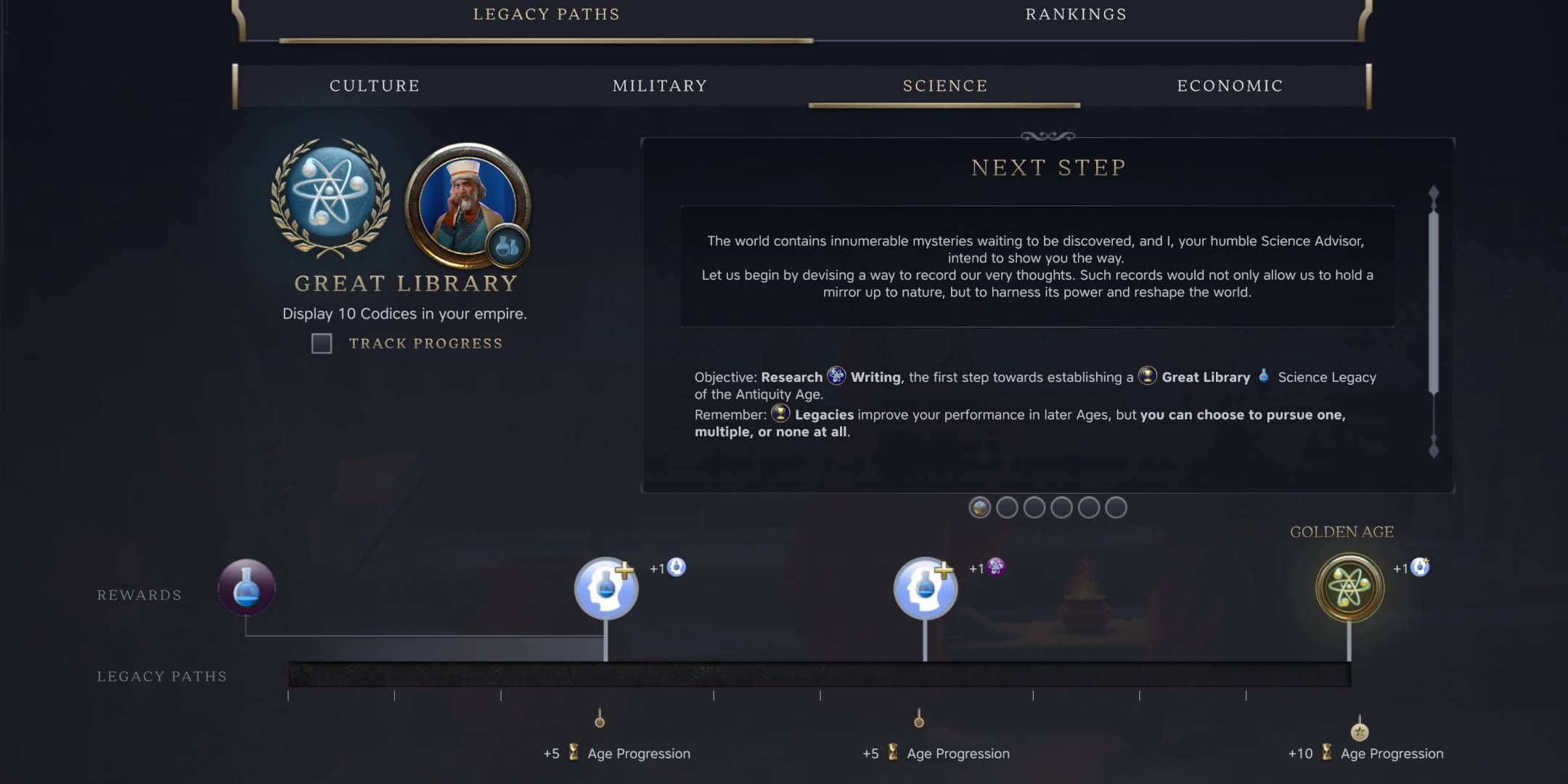

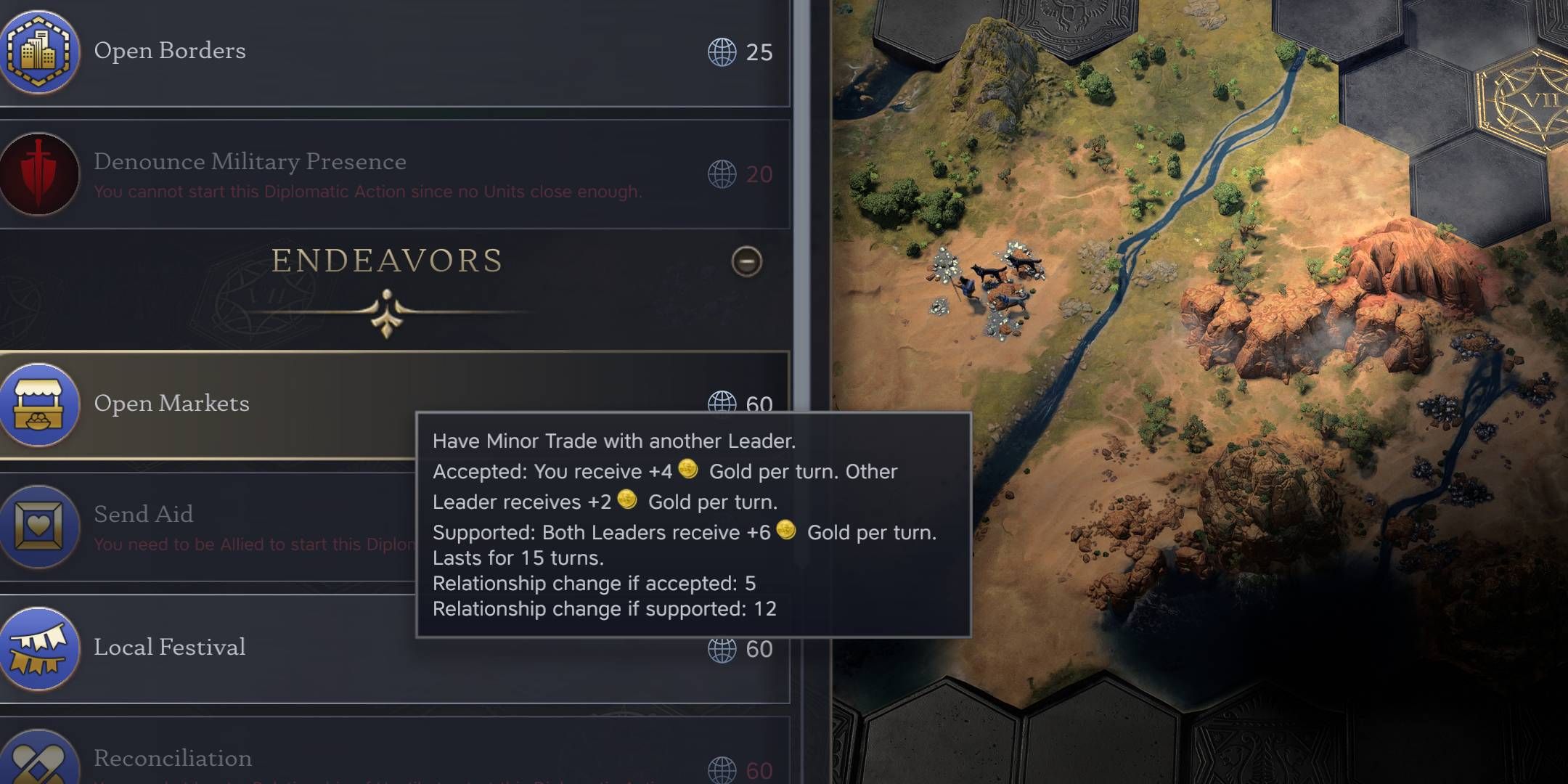
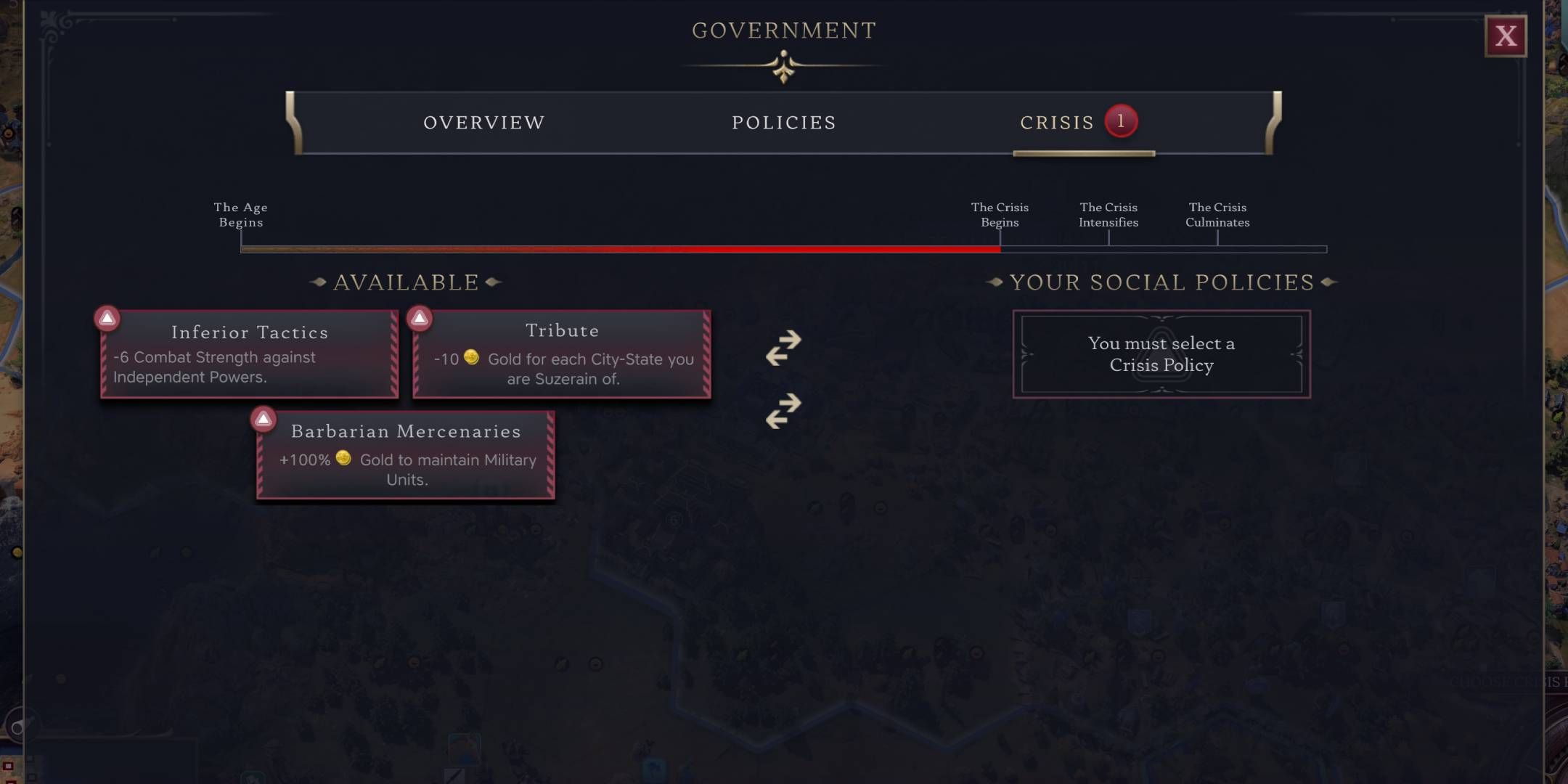



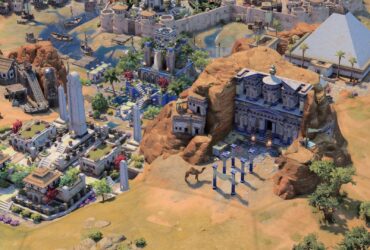
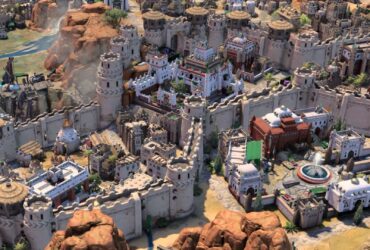



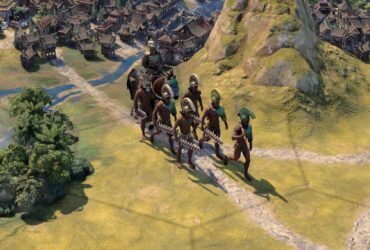
Leave a Reply